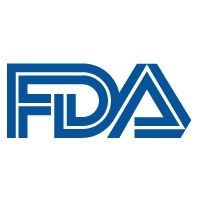FDA Approves Ivabradine to Treat Heart Failure
The US Food and Drug Administration today announced it has approved Amgen's Corlanor (ivabradine) to reduce hospitalization from worsening heart failure.

The US Food and Drug Administration today announced it has approved Amgen’s Corlanor (ivabradine) to reduce hospitalization from worsening heart failure.
According to a news release from Amgen, ivabradine is an oral medication indicated to reduce the risk of hospitalization for worsening heart failure in patients with stable, symptomatic chronic heart failure with left ventricular ejection fraction (LVEF) ≤35 percent, who are in sinus rhythm with resting heart rate ≥70 beats per minute (bpm) and either are on maximally tolerated doses of beta blockers or have a contraindication to beta blocker use.
Heart failure affects more than 5.5 million people in the US, nearly half of whom have reduced left ventricular function. It is a serious, chronic condition that to increase in prevalence by nearly 46% by 2030, and to cost nearly $70 billion per year (mostly due to the cost of hospitalizations of patients with this condition).
Ivabradine was reviewed under the FDA’s priority review program, and also granted fast track designation.
The drug works by blocking the hyperpolarization-activated cyclic nucleotide-gated (HCN) channel responsible for the cardiac pacemaker, and reducing the “spontaneous pacemaker activity of the cardiac sinus node by selectively inhibiting the If current (‘funny’ current) to slow the heart rate with no effect on ventricular repolarization and no effects on myocardial contractility,” according to Amgen.
Approval of ivabradine was based in part on data from the phase 3 SHIFT (Systolic Heart failure treatment with the If inhibitor ivabradine Trial), which compared ivabradine to placebo “on top of standard of care (SOC) therapies, including beta blockers, in more than 6,500 clinically stable (≥4 weeks) patients in sinus rhythm with reduced left ventricular function (LVEF ≤35 percent) and heart rate ≥70 bpm, with a hospitalization for heart failure within the past 12 months.”
Results from the study showed ivabradine “significantly reduced the risk of the primary composite endpoint of hospitalization or cardiovascular death for worsening heart failure, with 18 percent relative risk reduction (RRR) (p<.0001, 4.2 percent absolute risk reduction [ARR]) versus placebo.”
The most common side effects reported during the trial included bradycardia, hypertension, atrial fibrillation, and temporary vision disturbance.
Jeffrey S. Borer, MD, professor of Medicine, Cell Biology, Radiology and Surgery, and chief of Cardiovascular Medicine at State University of New York, Downstate Medical Center, said the approval of ivabradine “is an important step forward for the treatment of patients with chronic heart failure in the U.S. Because its mechanism of action is unique, it will complement the use of standard heart failure therapies, including beta blockers. Despite beta blockade and other therapies, many people with chronic heart failure continue to suffer hospitalizations due to worsening heart failure.”
For patients with heart rate ≥70 bpm, Borer said ivabradine “may be an appropriate treatment option and can be expected to add benefit.”
The FDA announced ivabradine will be dispensed with a patient Medication Guide that provides instructions for its use and important drug safety information. The FDA also advised health care professionals to counsel patients about the risk of harm to an unborn baby, and advise that women should not become pregnant while taking ivabradine.